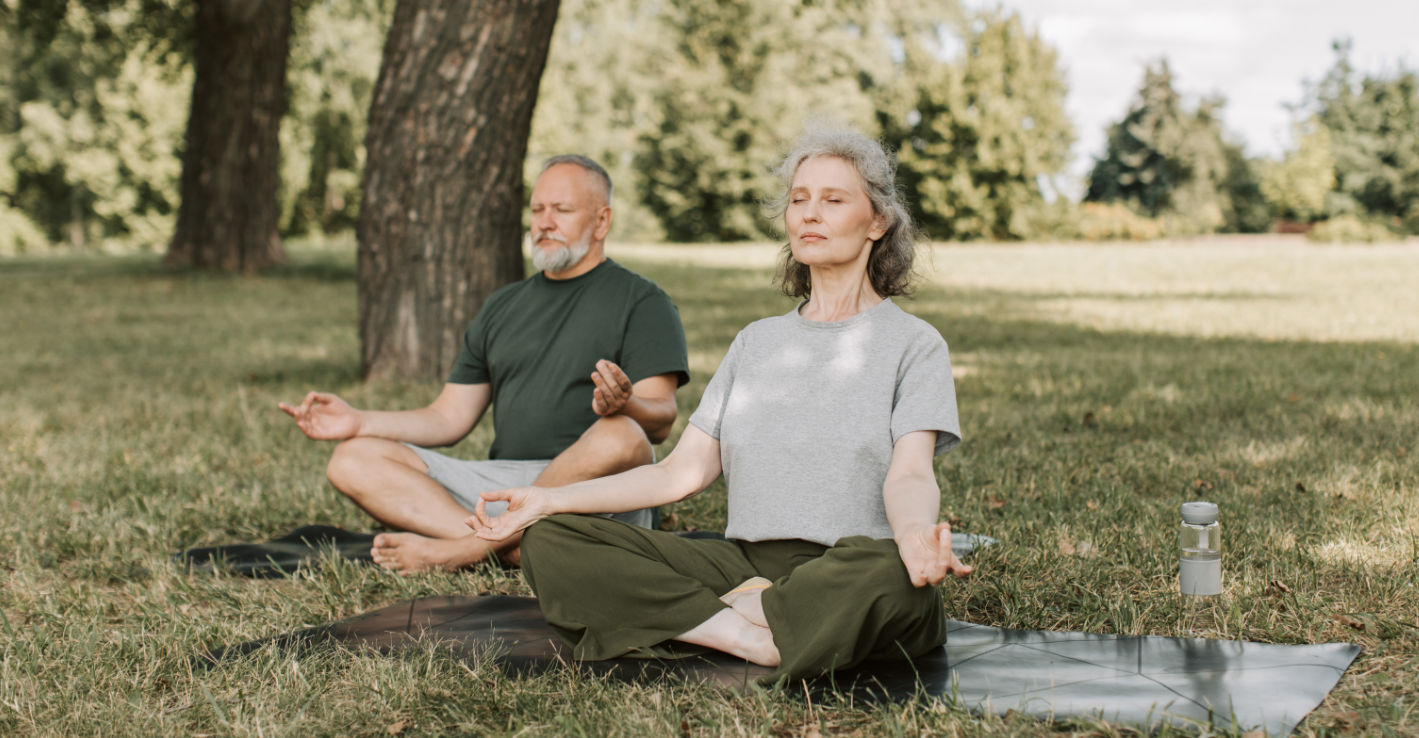Speak to a local care advisor at Assisted Living Locators by calling (888)-267-4741.
Learn about Assisted Living, Senior Living, Memory Care, and In-home care options.
Meditation is a timeless practice, a mental discipline that has been embraced by cultures worldwide for thousands of years. And now, more than ever, seniors are discovering its benefits. Meditation for seniors can enhance the golden years, offering a range of health and wellness advantages that make aging a more graceful and enjoyable process. In the following sections, we’ll delve into the world of meditation, examining various techniques, the potential benefits for older adults, and practical tips to get started.
What is Meditation?
Meditation is a practice that aims to cultivate mental clarity, emotional calm, and physical relaxation. Contrary to popular belief, it’s not about “emptying” the mind but training it to focus and redirect our thoughts. In essence, meditation is about being present and aware, without feeling the need to react or judge.
Why Should Seniors Meditate?
Aging often brings along certain challenges—physical pain, memory loss, emotional fluctuations, and more. Here’s where meditation can play a pivotal role. It can provide seniors with a tool to manage these issues, enhancing their overall well-being. A regular meditation practice can offer a host of benefits, from boosting mental focus to improving sleep quality.
The Benefits of Meditation for Seniors
The benefits of meditation for seniors are multi-fold, impacting both mental and physical health.
Mental Health Benefits
- Enhanced Cognitive Function: Meditation can stimulate the memory centers within the brain, potentially offsetting age-related cognitive decline. It can increase cortical thickness and grey matter, effectively slowing down the aging rate of the brain.
- Improved Focus: Regular meditation can augment mental alertness, creating a sharper, more focused mind. It can enhance cognitive function, making it a worthy tool for seniors aiming to maintain mental agility.
- Reduced Stress and Anxiety: Meditation is known to lower the stress hormone cortisol. High cortisol levels have been linked to various health issues, from high blood pressure to anxiety disorders. By lowering cortisol levels, meditation can help alleviate stress and anxiety.
Physical Health Benefits
- Better Sleep: Many seniors struggle with sleep issues, ranging from insomnia to frequent night-time awakenings. Meditation, particularly mindfulness and guided variants, can promote better sleep by calming the mind and body.
- Pain Management: Chronic pain is a common issue among older adults. Mindful meditation can help manage pain by creating a different experience of pain—observing it without judgement or resistance.
- Lower Blood Pressure: Regular meditation can contribute to healthier blood pressure levels, which is crucial for cardiovascular health.
Types of Meditation Suitable for Seniors
There are numerous types of meditation practices, each with different techniques and goals. Here are some that are particularly suitable for seniors:
- Body Scan Meditation: This is a type of guided meditation practice that can be done sitting or lying down. It’s a great way to manage pain and can be used as a tool to fall asleep.
- Walking Meditation: If sitting or lying down for extended periods is challenging, walking meditation can be a great alternative. It offers a rhythmic pattern conducive to effective meditation.
- Mindfulness Meditation: This type of meditation involves observing and accepting thoughts as they occur without judgment. It focuses on the present, blocking out modern-day distractions.
- Mantra Meditation: In this form of meditation, a word or phrase is silently repeated. This can help focus the mind, reducing distracting thoughts.
- Guided Meditation: For those new to meditation, guided practices can be a great starting point. They offer instructions and support, making the process more accessible.
How to Start Meditating
If you’re a senior looking to start a meditation practice, here are a few simple steps:
- Find a Quiet Place: Choose a spot where you won’t be disturbed. It could be a quiet corner of your room, a spot in your garden, or even a local park.
- Choose a Time: Try to meditate at the same time each day. This helps create a habit. Many people find early morning or late evening best.
- Start Small: Begin with just a few minutes each day. As you become more comfortable, gradually increase the duration.
- Use a Guide: Consider using a guided meditation app or video, especially when starting. These provide step-by-step instructions, making the process easier.
- Be Consistent: Consistency is key when it comes to meditation. Try to make it a part of your daily routine.
Conclusion
Meditation offers a pathway to enhanced well-being for seniors, promoting both physical and mental health. Whether it’s body scan meditation for pain management or mindfulness meditation for stress relief, there’s a technique out there to suit every individual. So, why not give it a try? Embrace meditation for seniors and discover a healthier, happier you.












